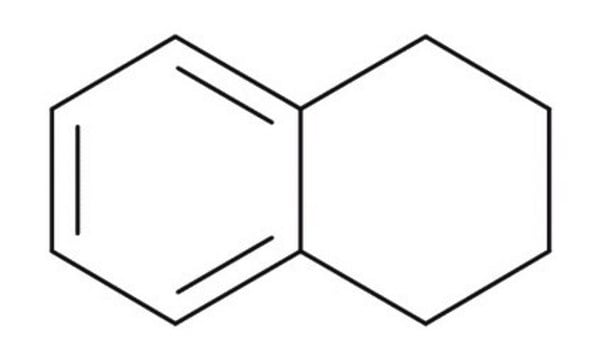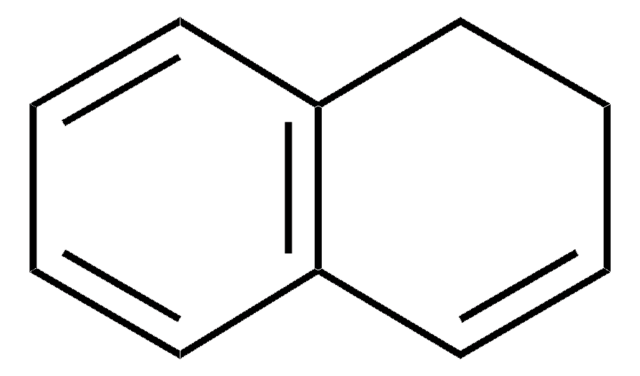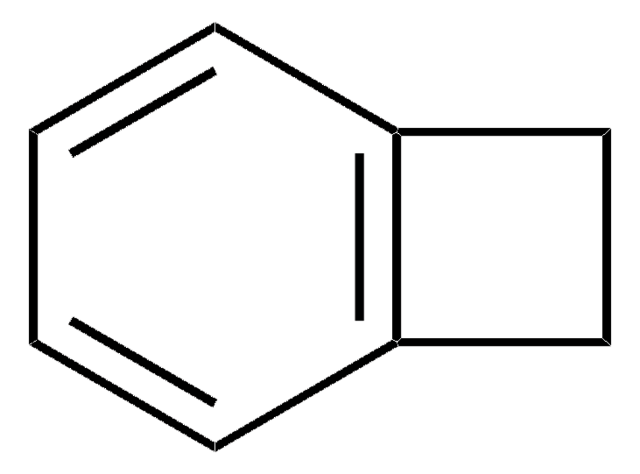522651
1,2,3,4-Tetrahydronaphthalene
anhydrous, 99%
Synonym(s):
Tetralin solvent
About This Item
Recommended Products
grade
anhydrous
Quality Level
vapor density
4.55 (vs air)
vapor pressure
0.18 mmHg ( 20 °C)
Assay
99%
form
liquid
autoignition temp.
723 °F
expl. lim.
0.8 %, 100 °F
5 %, 150 °F
impurities
<0.005% water
refractive index
n20/D 1.541 (lit.)
bp
207 °C (lit.)
mp
−35 °C (lit.)
density
0.973 g/mL at 25 °C (lit.)
SMILES string
C1CCc2ccccc2C1
InChI
1S/C10H12/c1-2-6-10-8-4-3-7-9(10)5-1/h1-2,5-6H,3-4,7-8H2
InChI key
CXWXQJXEFPUFDZ-UHFFFAOYSA-N
Looking for similar products? Visit Product Comparison Guide
Related Categories
General description
Application
Legal Information
Signal Word
Danger
Hazard Statements
Precautionary Statements
Hazard Classifications
Aquatic Chronic 2 - Asp. Tox. 1 - Carc. 2 - Eye Irrit. 2 - Skin Irrit. 2
Supplementary Hazards
Storage Class Code
10 - Combustible liquids
WGK
WGK 2
Flash Point(F)
159.8 °F - closed cup
Flash Point(C)
71 °C - closed cup
Choose from one of the most recent versions:
Already Own This Product?
Find documentation for the products that you have recently purchased in the Document Library.
Customers Also Viewed
Our team of scientists has experience in all areas of research including Life Science, Material Science, Chemical Synthesis, Chromatography, Analytical and many others.
Contact Technical Service














